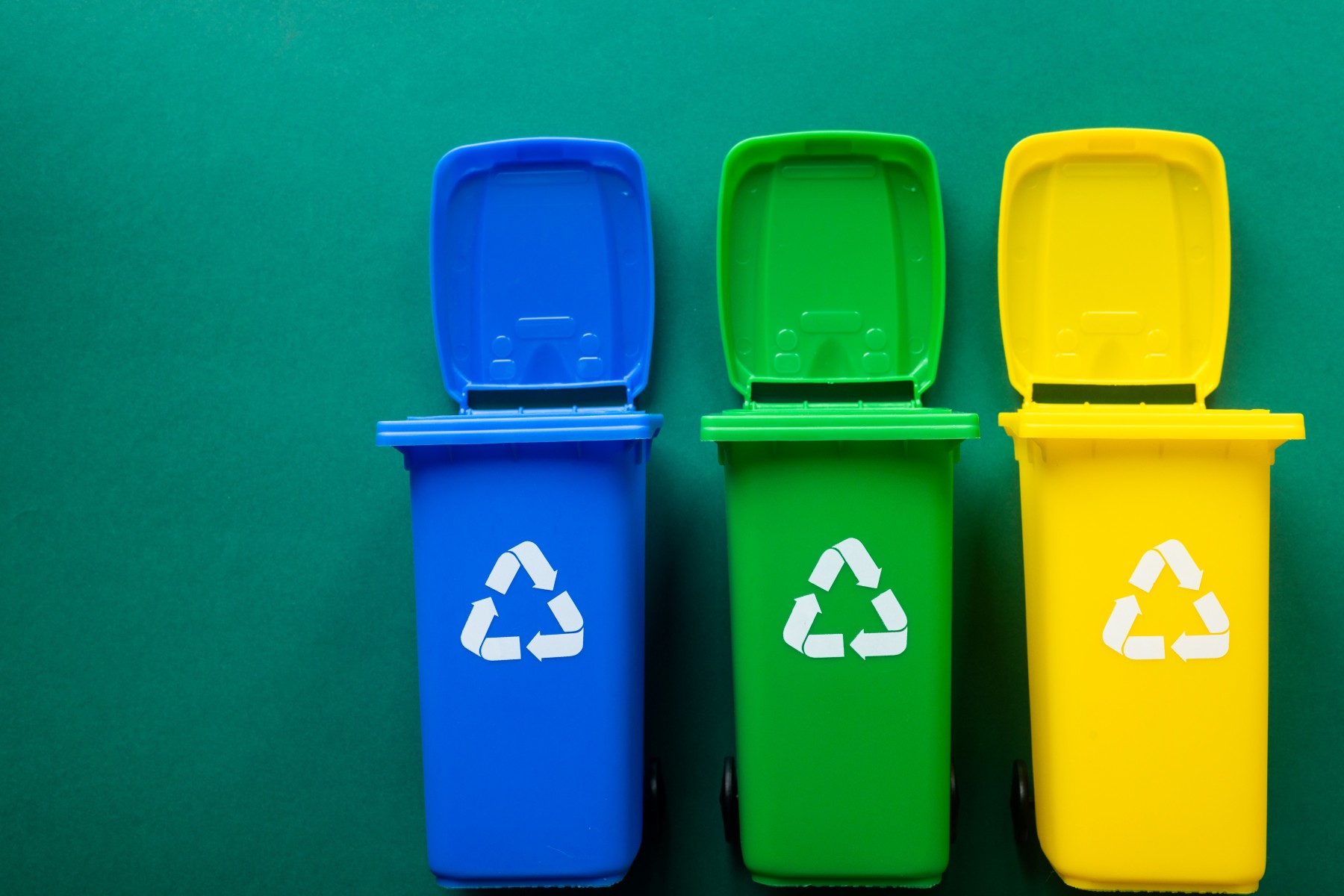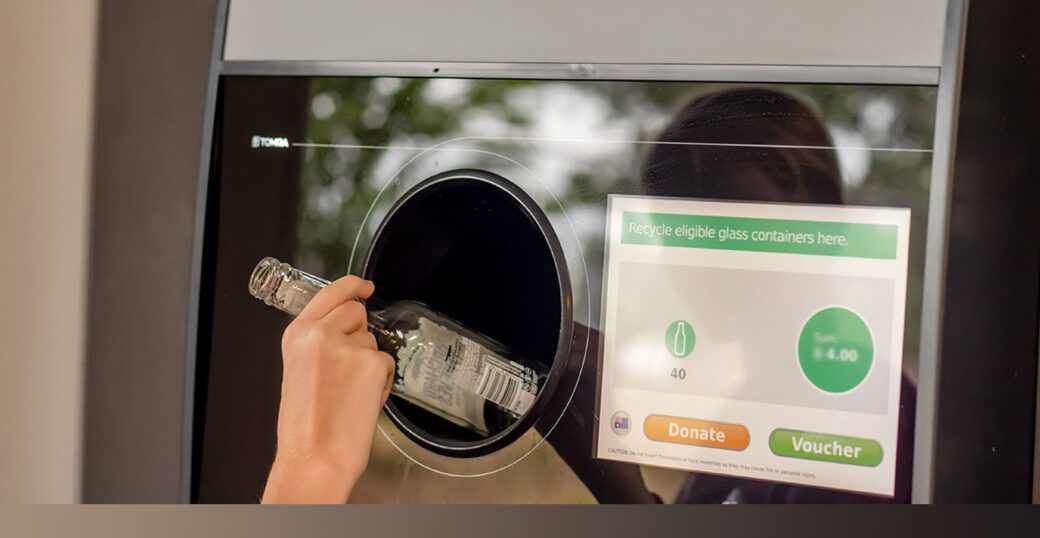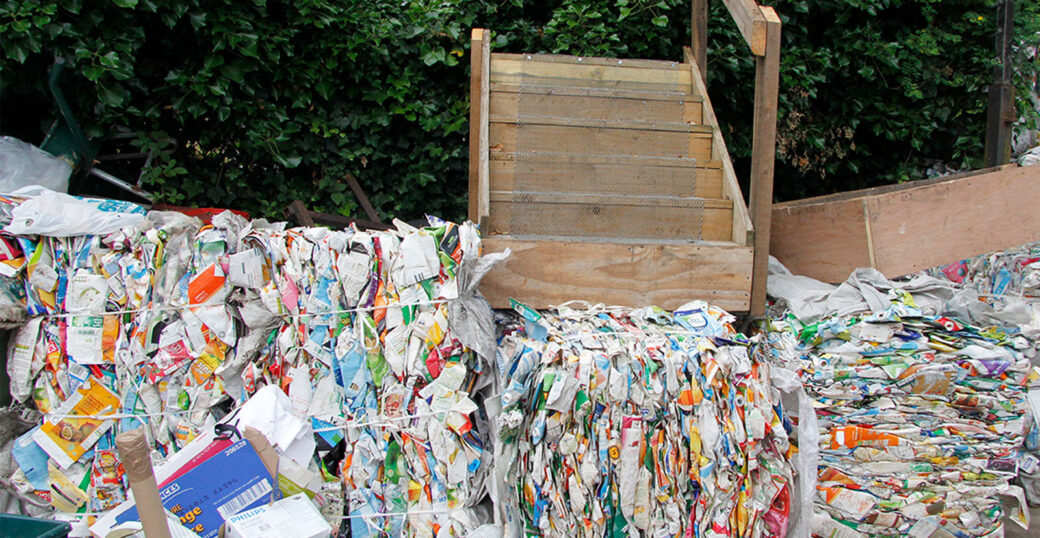Simpler Recycling is the UK Government’s new framework to standardise how recyclable materials are collected from households and workplaces in England. It requires local authorities and businesses to collect a core set of materials consistently, reducing regional variation and making recycling clearer for residents and employees.
This article explains what Simpler Recycling is, how it works, what it aims to achieve, and the key implementation timelines.
What is Simpler Recycling?
The purpose of Simpler Recycling is to ensure that all homes and businesses separate key recyclable materials at the point of disposal. By clearly defining waste streams and requiring their separate collection, the policy reduces contamination, improves the quality of recycling feedstock and provides residents and employees with greater clarity over what can and cannot be recycled.
These requirements began applying to workplaces with 10 or more full-time equivalent employees on 31 March 2025. From 31 March 2026, all local authorities must implement standardised core recycling collections for households, including weekly food waste collections wherever practicable, ensuring residents receive a consistent and easy-to-understand service across England.
How it works
Households
Local authorities must arrange the separate collection of the following materials:
- Food waste
- Garden waste
- Paper and card
- All other dry recyclable materials (glass, metal and plastic, including cartons)
- Residual waste (non-recyclable waste that is sent for energy recovery or to landfill)
All these types of waste must be collected from all households (including flats).
Councils have flexibility in how collections are delivered, meaning paper and card may be collected together with other dry recyclables (co-mingled) where this is appropriate, based on local circumstances. The policy allows local councils flexibility on collection frequency and waste container formats, to best suit each council.
Exemptions apply for rural areas, properties without storage space and certain types of flats, where fully separate collection is not reasonably practicable.
Workplaces
All workplaces in England must sort their waste before collection, including anything discarded by employees, customers, and visitors, into the following categories:
- Dry recyclable materials (plastic, metal, glass, paper and card)
- Food waste
- Non-recyclable waste (also called residual waste)
Businesses can either provide separate bins for each waste type or sort the waste before collection, including any waste from customer or visitor bins. Businesses who generate garden waste, must arrange for it to be recycled or composted where this gives the best environmental outcome.
Micro-businesses (<10 employees) follow the same rules from 31 March 2027.
As non-compliance with the Simpler Recycling rules can have a negative impact on recycling performance and the wider environment, any business or organisation that is not separating or collecting recyclable waste in line with the Simpler Recycling rules can be reported directly to the Environment Agency here: Report a Simpler Recycling non-compliance – GOV.UK
What its aims are
Simpler Recycling aims to create clearer, more consistent recycling collections across England.
It addresses several long-standing challenges:
- Reducing confusion by eliminating the postcode lottery of different council systems.
- Lower contamination, especially by removing food waste and promoting separate paper/card collections.
- Improving recycling quality, ensuring that more collected material can be genuinely recycled.
- Reducing “wishcycling” by giving residents clarity on what is accepted everywhere.
Household recycling rates in England have stagnated at around 44–46% since 2015. By aligning kerbside collections with EPR funding and future Deposit Return Schemes (DRS), Simpler Recycling aims to increase recycling rates and ensure producer fees support systems that collect packaging in a high-quality, recyclable form.
Simpler Recycling timelines
- 31 March 2025: Workplaces in England with 10+ full-time employees must separate recyclable materials.
- 31 March 2026: Local authorities must provide collection services that enable households to separate recyclable materials.
- 31 March 2027: Micro-businesses (<10 full-time employees) must comply.
- 31 March 2027: Local authorities must also begin collecting plastic film and bags with household plastic recycling.
Businesses who fail to comply with these requirements since 31 March 2025 (or by 31 March 2027 for micro-firms), may receive a compliance notice from the Environment Agency.
Read the Simpler Recycling government guidance here: Simpler recycling: workplace recycling in England – GOV.UK
Download the Simpler Recycling Guidance PDF here: Simpler Recycling: workplace recycling in England pdf




